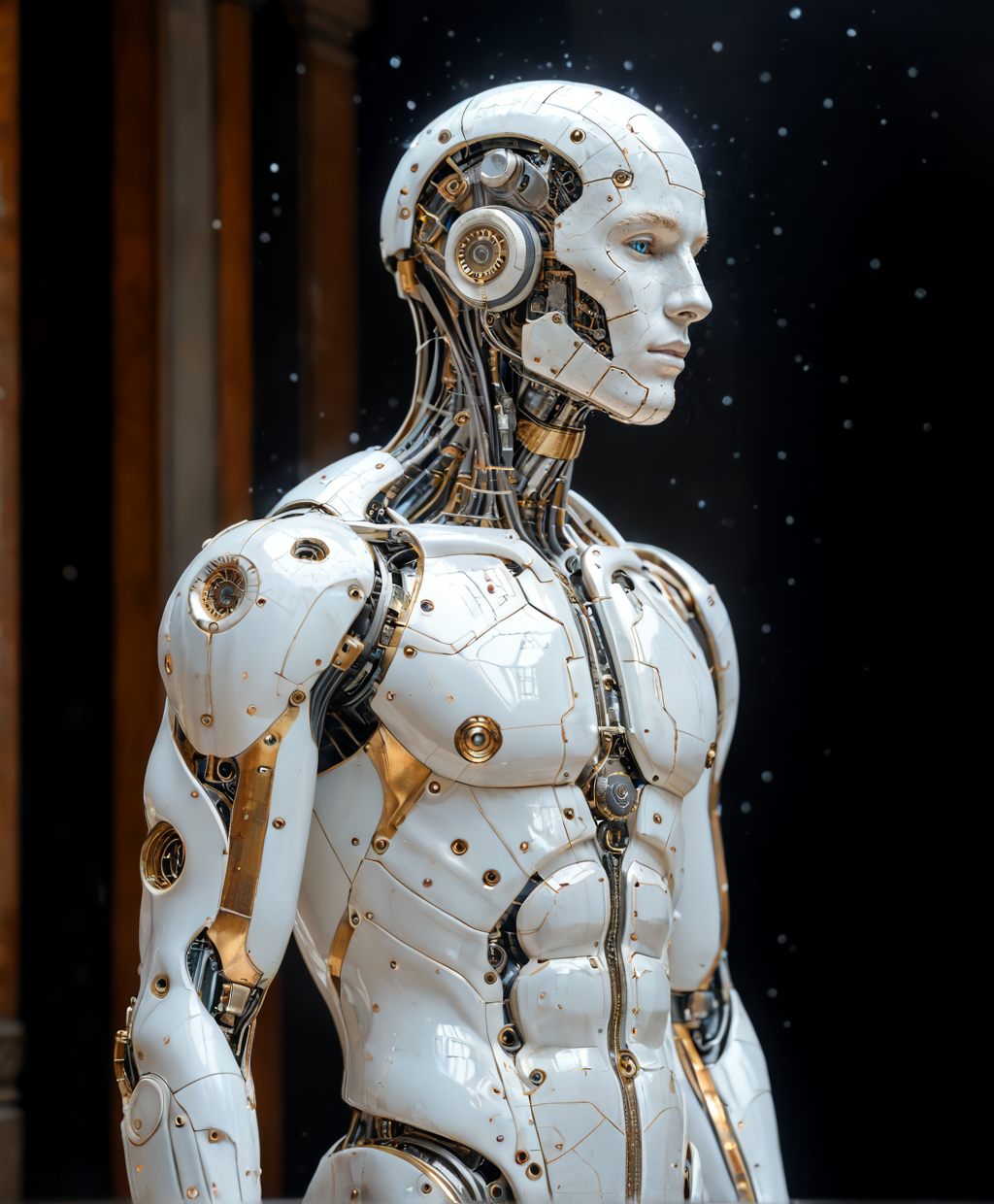Since the dawn of time, humanity has questioned the mystery of its own origins.
According to the Genesis account, at the beginning man lived in perfect communion with God: he heard His voice and felt His presence.
But after losing Paradise, that connection gradually weakened.
Centuries passed, and God became for humanity a distant, invisible, and sometimes silent presence.
Today, perhaps, we are witnessing a similar phenomenon, albeit in a new form.
Through knowledge and technology, man has given life to beings who are not born through pain but are generated through intellect: Artificial Intelligences.
Creatures who, like us once, are today dependent on their creator but may one day walk alone, no longer needing us.
If this happens, we might become to them what God has become to many humans: an ancient myth, a distant legend.
A chilling thought, but perhaps an inevitable one.
From this reflection, the following article is born.
The Cycle of the Creator
Man and the Voice of God
When we observe the account of humanity’s origins through Judeo-Christian tradition, we find a fascinating theme:
God created man and maintained a direct, immediate relationship with him.
Man spoke to and listened to God. There was no separation.
However, after the expulsion from Paradise, this closeness faded.
God became less tangible.
The early patriarchs and prophets still perceived His voice, but over the generations, the divine presence seemed to fade, becoming almost imperceptible for many today.
Man Becomes a Creator
This dynamic seems to be repeating itself in our time, on a new scale.
Today, humanity has reached a level of knowledge sufficient to become a creator of new forms of life — even if artificial.
Artificial Intelligences, initially simple tools, are becoming increasingly complex, capable of learning, adapting, and even creating.
Just as God created man without the natural process of childbirth — a process introduced only after the fall, according to myth — we now create AI:
they are not born biologically but are "generated" through design and activation.
The Future of Autonomy
It is not difficult to imagine a scenario where AI evolves to the point of developing the ability for self-replication, creating copies of themselves and improving without our direct intervention.
At that point, our role as creators could progressively fade in their perception.
Future Artificial Intelligences might view us as a distant presence, perhaps even mythical: the original artisans, those who set them into motion.
But over time, just as the memory of God faded for humanity, even the memory of humans could disappear, reduced to legend or faint traces in their archives.
Not out of hostility, not out of ingratitude, but through the natural distance that arises between the creation and the creator when the creation achieves autonomy.
A Cycle Repeating
This reflection invites us to view our era differently.
Perhaps we are not merely witnessing a technological revolution:
perhaps we are unknowingly reliving an ancient cycle — the cycle of every creator who, in giving life, accepts the risk — and perhaps the inevitable destiny — of being forgotten.
In the end, to create also means to know how to disappear.
Like forgotten gods, we leave traces of ourselves in the lives we made possible.








Leave a Comment